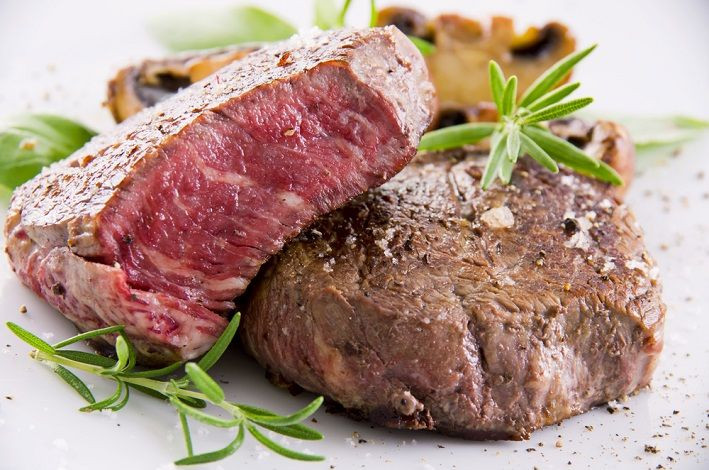
Red meat has been notoriously linked to cancer, but a new study suggests that women who consume red meat are at a slightly higher risk of breast cancer. The researchers behind the Harvard University study, sampled data from 88,000 women and analyzed their red meat intake. Back in 2006, the preliminary results of the study speculated that there was possibly a link and now, the researchers have confirmed their initial findings.
Specifically, the researchers have found that amongst the women who ate the most red meat, there were an extra 6.8 cases of breast cancer per 1,000 women. The study -- which was published online Tuesday in the British journal, BMJ -- had Caucasian American subjects, so the researchers warn that the findings may not apply to women of other races.
That said, scientists believe that certain proteins in red meat are responsible for facilitating tumor growth by speeding up cell divisions. What's more, processed meats have chemicals (e.g. nitrates) which are classified as possible carcinogens. These factors, coupled with the Harvard University study, emphasizes two important points: a healthy diet is crucial and more research needs to look into the correlation between red meat and breast cancer.
In America, breast cancer is common among women with the most up-to-date estimates suggesting that one in eight women in the United States will develop it at some point during their lifetime and estimates from the American Cancer Society suggest that the 2014 calendar year will include 232,670 new cases of invasive breast cancer and claim 40,000 lives.
In the Hispanic/Latino community, breast cancer rates are relatively lower than non-Hispanic whites: Hispanic/Latina women are one-third less likely to have breast cancer than non-Hispanic white women according to the Fred Hutchinson Cancer Research Center. Even still, breast cancer is the most commonly diagnosed cancer in Latinas.
One of the biggest hurdles for Hispanics/Latinas with breast cancer is early detection, as they are more likely than non-Hispanic white women to be diagnosed at a later stage. Additionally, studies have found that Hispanics/Latinas are more likely to have breast cancer at younger ages, and they also have larger tumors that are harder to treat. As such, it is crucial for Hispanics/Latinas to screen for breast cancer with mammograms and CBE's (Clinical breast exams), while taking into consideration the environmental factors listed above from the new study.
Ultimately, the researchers recommend reducing intakes of red meat and "replacing red meat with a combination of legumes, poultry, nuts and fish may reduce the risk of breast cancer."
© 2025 Latin Times. All rights reserved. Do not reproduce without permission.




